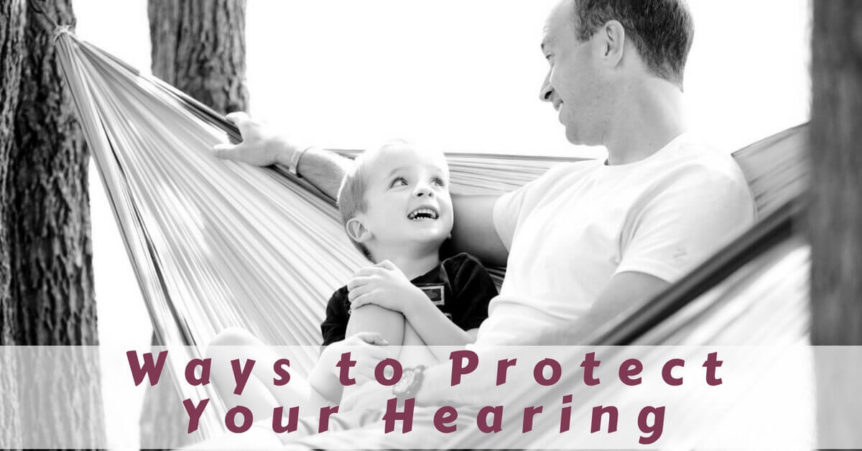Even though we’d all like to be invincible, the truth of the matter is that our bodies wear out. Our muscles ache after a long day at work, our eyesight isn’t what it used to be, and our hearing deteriorates with age. You can get a massage for sore muscles and wear glasses to see clearly, but once your hearing is gone it’s never coming back.
While hearing aids are advanced pieces of technology that help you hear, and allow you to live a full life, hearing devices can never fully restore your hearing to what is used to be. That’s why it’s so important to do everything you can to protect your ears, and keep your hearing sharp for years to come.
Wear Earplugs
You know you’ve damaged your hearing when you leave work with ringing in your ears. By the next day your ears feel fine again, so you never bother to wear hearing protection. While it seems that everything goes back to normal, the truth is that all that exposure to dangerously loud sounds is chipping away at your hearing, causing damage that will inevitably lead to hearing loss.
Fifteen percent of all Americans suffer from noise induced hearing loss! Don’t risk your hearing, but get in the habit of carrying earplugs in your bag, and wearing them whenever it seems too loud. How loud is too loud? If you have to yell to be heard by the person standing next to you, it’s far too loud and you need to protect your hearing. Watch out for noisy work and leisure activities. Bars, concerts, chainsaws, and even lawnmowers will damage your hearing health.
Don’t Turn It Up
If you regularly watch TV, or listen to music with earbuds in, you probably need to turn the volume down, not up. The World Health Organization recently said that approximately 1 billion teens are at risk of noise induced hearing loss from unsafe listening practices. A good rule of thumb to protect your hearing is the 60/60 rule. If you’re listening with earbuds or headphones, only listen at 60% of the maximum volume. After 60 minutes take a break, your ears need a rest.
When at a concert or bar, it’s still important to give your ears this break, so step outside for 5 minutes so they can rest. If you use earbuds a lot, consider switching to headphones. Earbuds can do far more damage to your hearing, since they fit snuggly into your ear and blast sounds right next to your ear drums.
Put Away the Q-tips
While you might think that cleaning your ears every night with a Q-tip is a good idea, this is in fact one of the worst things you can do! Even though earwax can seem like a sticky nuisance, it is an important part of your hearing health. Earwax is the ears way of cleaning itself, and the wax stops dirt, dust, and moisture from getting down your ear canal to your eardrum. Not only that, but putting anything inside your ear canals is dangerous, since your risk damaging or even puncturing the eardrum.
Do you have a buildup of wax? Clean your ears with a damp towel, or use an ear wax removal solution that will soften the earwax and allow it to flow out on its own. Drop the Q-tip, and protect your hearing.
Stay Active
Being active is good for your overall health, as well as for your hearing health. Not only do cardio exercises promote heart health, they also protect your hearing. Getting the blood pumping by walking, running, cycling, or any other exercise that increases blood flow to the ears, keeping them healthy and in tip top shape.
Visit Us at Neighborhood Hearing Aid Center for a Checkup
Early detection and treatment is one of the best ways to protect your hearing. Hearing loss develops gradually, so you may not notice it creeping up on you. But every day that you leave your hearing loss untreated, the worse your hearing becomes, as brain cells that are no longer being used to hear slowly die. Even if you get a hearing device later, these cells won’t come back. We recommend a yearly hearing test to monitor your hearing, and protect your hearing health. Call Neighborhood Hearing Aid Center today to book a hearing test.

